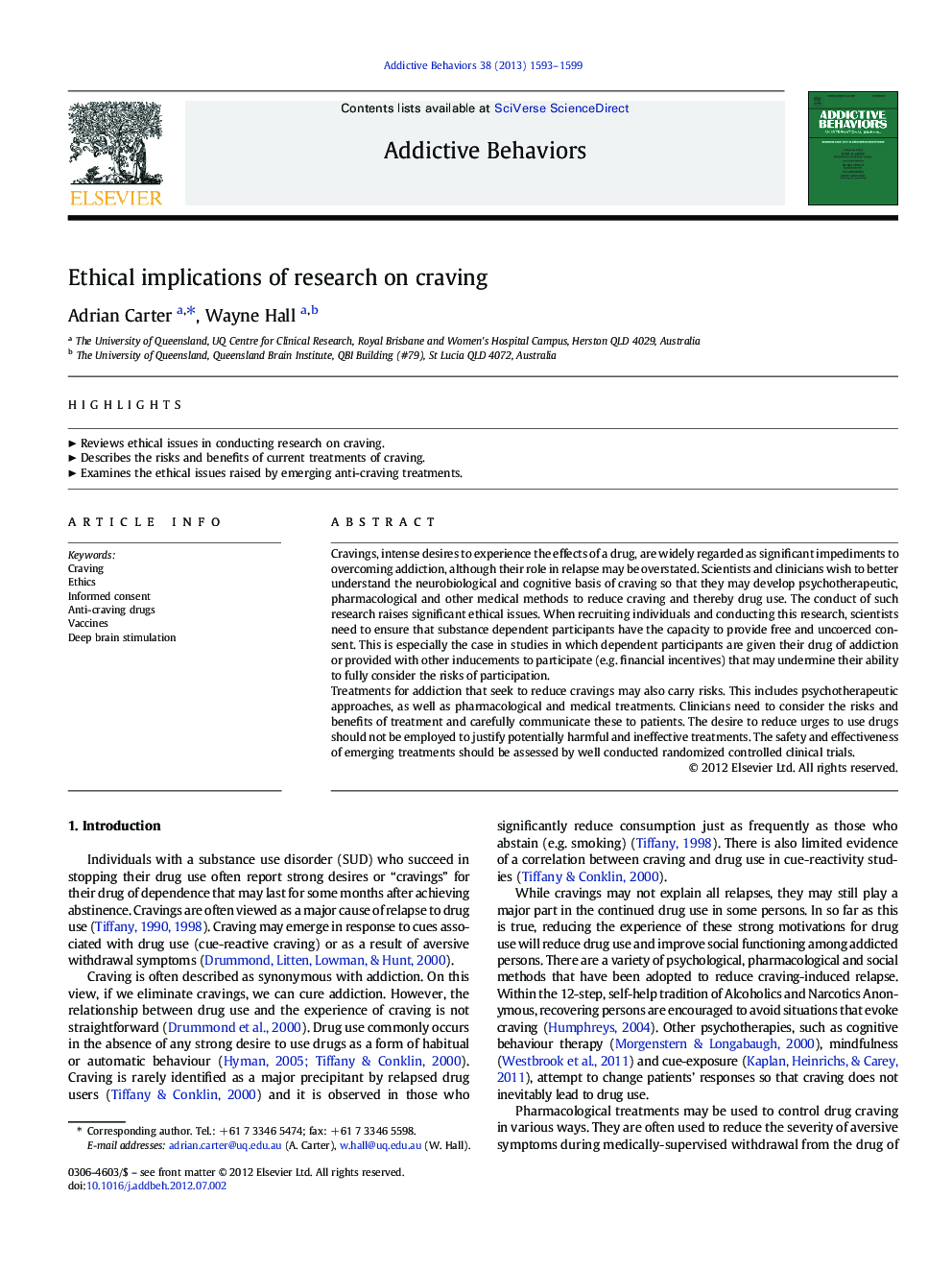| کد مقاله | کد نشریه | سال انتشار | مقاله انگلیسی | نسخه تمام متن |
|---|---|---|---|---|
| 899124 | 915362 | 2013 | 7 صفحه PDF | دانلود رایگان |

Cravings, intense desires to experience the effects of a drug, are widely regarded as significant impediments to overcoming addiction, although their role in relapse may be overstated. Scientists and clinicians wish to better understand the neurobiological and cognitive basis of craving so that they may develop psychotherapeutic, pharmacological and other medical methods to reduce craving and thereby drug use. The conduct of such research raises significant ethical issues. When recruiting individuals and conducting this research, scientists need to ensure that substance dependent participants have the capacity to provide free and uncoerced consent. This is especially the case in studies in which dependent participants are given their drug of addiction or provided with other inducements to participate (e.g. financial incentives) that may undermine their ability to fully consider the risks of participation.Treatments for addiction that seek to reduce cravings may also carry risks. This includes psychotherapeutic approaches, as well as pharmacological and medical treatments. Clinicians need to consider the risks and benefits of treatment and carefully communicate these to patients. The desire to reduce urges to use drugs should not be employed to justify potentially harmful and ineffective treatments. The safety and effectiveness of emerging treatments should be assessed by well conducted randomized controlled clinical trials.
► Reviews ethical issues in conducting research on craving.
► Describes the risks and benefits of current treatments of craving.
► Examines the ethical issues raised by emerging anti-craving treatments.
Journal: Addictive Behaviors - Volume 38, Issue 2, February 2013, Pages 1593–1599